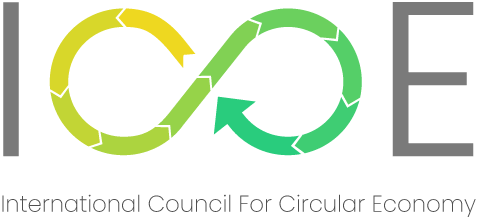The Growing Waste Havoc in India
Waste management in India has reached a crisis point. With overflowing landfills and mismanaged waste, all the metropolis including most of the big cities in India are facing severe environmental and health hazards. The linear waste management infrastructure—where waste is simply collected, transported, and dumped—has failed to keep up with the rapidly increasing waste generation. Natural habitats and wetlands are being converted into landfills, further endangering biodiversity and disrupting ecosystems. These landfills have become potent source of GHG emission, while also polluting nearby aquifers through leachates originating from these landfills. Without urgent intervention, the burden on landfills will continue to grow, leaving little space for nature to thrive.
A shift towards a circular economy—where waste is captured, repurposed, and reintegrated into the economy—is crucial to address this crisis. However, to make this transition feasible, investment in decentralized waste management units is essential, alongside awareness campaigns to ensure source segregation of wastes, and promote ownership and responsibility among citizens, businesses, and policymakers.
Plastic Waste: The Silent Culprit
Out of the waste that is generated, plastic waste has been the maximum portion of dry waste and is increasing year by year. India generates 9.3 million tonnes of plastic waste annually, contributing nearly 20% of the global plastic crisis. While the informal sector collects a significant portion, systemic challenges prevent effective recycling:
- Low-value plastics like single-use packaging often end up in landfills and
- Informal sector instability leaves waste pickers in poor working conditions without social protection.
- Infrastructure gaps in segregation and processing limit recycling
- Lack of scalable models makes waste management financially unsustainable, especially in peri-urban and rural areas.
Without intervention, plastic pollution will continue to overwhelm ecosystems, making decentralized recycling and circular economy solutions crucial for long-term sustainability.
Why Waste Management Matters for Biodiversity
Plastic waste has become one of the most pervasive environmental challenges of our time. It is found in nearly every ecosystem, from ocean depths to mountain peaks.
Waste infiltrates every corner of the natural world — from the depths of the oceans to the heart of the most remote forests — harming species and degrading habitats. Birds and marine life mistake plastic for food, leading to injury and death, while micro-plastics seep into the soil and water, threatening the delicate balance of ecosystems. As plastic waste continues to accumulate in critical ecosystems, WWF India recognizes that tackling this crisis through a circular economy lens is essential to preserving biodiversity and ensuring a sustainable future.
The harmful effects of plastic pollution extend beyond the environment — they undermine food security, public health, and economic stability in vulnerable communities. This interconnected crisis calls for systemic solutions rooted in the principles of a circular economy
— reducing waste at the source, segregation at the point of generation, improving collection, pre-processing and recycling infrastructure, and creating value from waste through innovative and bankable business models.
The Need for Decentralized Waste Management Units
While initiatives like the Swachh Bharat Mission have made progress, such initiatives alone cannot solve the problem. The sheer volume of waste, combined with logistical and sorting challenges, necessitates a more localized approach. Modular, small-scale waste management units within residential societies, industrial hubs, and commercial areas could drastically improve efficiency.
Decentralized waste management integrates the principles of circular economy at a local level, ensuring that waste is processed closer to its source. This approach minimizes transportation costs, improves waste segregation, and increases recycling rates. By implementing efficient logistics systems, communities can take charge of their waste, reducing reliance on distant landfills and preventing environmental degradation.
Moreover, circularity at the terrestrial level can positively impact marine and freshwater ecosystems. Poor waste management on land often leads to pollution in rivers and oceans, affecting aquatic life and water quality. By addressing waste problems upstream, we can prevent contamination downstream.
A successful waste management system requires a multi-stakeholder approach collaboration between the government, businesses, and society. The government must enforce waste segregation policies, incentivize circular economy initiatives, and strengthen Extended Producer Responsibility (EPR) to hold manufacturers accountable. Businesses should invest in waste infrastructure, adopt sustainable packaging, and develop markets for recycled materials. Meanwhile, community engagement is key—households must practice waste segregation, participate in decentralized collection programs, pay a service fee and support ethical waste management initiatives that ensure fair wages and safe conditions for waste pickers.
Rethinking Waste Management: A Decentralized Approach- SAIM
Most cities in India rely on a centralized waste management model, largely dependent on government support and grants. While these facilities are equipped with advanced technology, their primary objective is waste clearance rather than fostering a circular economy. The prevailing approach prioritizes converting waste into Refuse-Derived Fuel (RDF) over recovering valuable materials that could be reintegrated into production cycles. Moreover, the fragmented contractor networks operating within these large-scale facilities often lack structured systems to ensure ethical and traceable waste management practices.
This gap is evident in Goa, where centralized waste processing units in Saligao and Kakoda handle significant waste volumes but place minimal emphasis on material recovery. As a result, a considerable portion of recyclable waste is either incinerated or landfilled, missing a crucial opportunity to extend the lifecycle of valuable resources.
Recognizing the need for a more localized and sustainable approach, WWF India, in partnership with Saahas Zero Waste Pvt Ltd, launched the SAiM (Sustainable Approach to Integrated Waste Management) Goa initiative in Margao, South Goa. SAiM is a Konkani word, which means ‘nature’. This initiative directly addresses long-standing waste challenges, particularly plastic pollution, by demonstrating how decentralized waste management can enhance material recovery, traceability, and community participation. Unlike conventional MRFs, SAIM Goa prioritizes ethical waste collection and meticulous sorting into 20+ categories. Recyclables such as HDPE, PET, LDPE, PP and paper are directed to authorized recyclers with transparent processing systems, ensuring traceability and accountability. Meanwhile, non-recyclable materials, which still have no demand due to lacking commercial scale recycling facility including multi-layered plastics (MLPs), are processed into RDF.
Beyond waste processing, the initiative plays a pivotal role in community engagement and environmental protection. Situated near the Sal River—a vital ecosystem—the initiative actively works to prevent waste from entering waterways, addressing a critical intersection between terrestrial waste management and marine pollution. A key aspect of the project is its emphasis on proper waste segregation into three primary categories: dry, wet, and sanitary waste, enabling more efficient processing and higher-quality recycling. Also, awareness activities are central to fostering long-term behavioral change, ensuring that residents, businesses, and municipal authorities remain active participants in the waste management ecosystem.
By establishing a financially viable model, SAIM Goa demonstrates that decentralized waste management is not just a sustainable solution but also a bankable one. Through ethical collection, efficient sorting, and transparent recycling pathways, the project sets a precedent for scaling similar initiatives nationwide. It also supports emerging innovations in recycling, bridging the gap between pilot projects and commercially viable solutions.
This initiative highlights how decentralized waste management can complement or even outperform traditional centralized systems, particularly in regions where waste logistics and material recovery remain challenges. By reducing transportation costs, improving sorting quality, and fostering local responsibility, such models pave the way for scalable, financially sustainable waste management solutions that align with circular economy goals.
To know about the project please refer to the Project Launch and SAIM Goa’s YouTube video (if there is a digital publication, this can be used)


Pictures from SAIM Goa Project
Conclusion: A Call for Systemic Change
The waste crisis in India demands immediate and systemic change. The traditional linear waste disposal model is unsustainable and is causing irreversible damage to ecosystems. A shift towards decentralized, circular economy-based waste management can provide a sustainable solution.
With active participation from governments, businesses, and communities, we can build a waste management system that not only reduces pollution but also creates economic opportunities. The time to act is now—by investing in decentralized waste processing, supporting ethical recycling businesses, and embracing circular economy principles, we can turn waste from an environmental burden into a valuable resource.

Senior Expert in Circular Economy
WWF India
